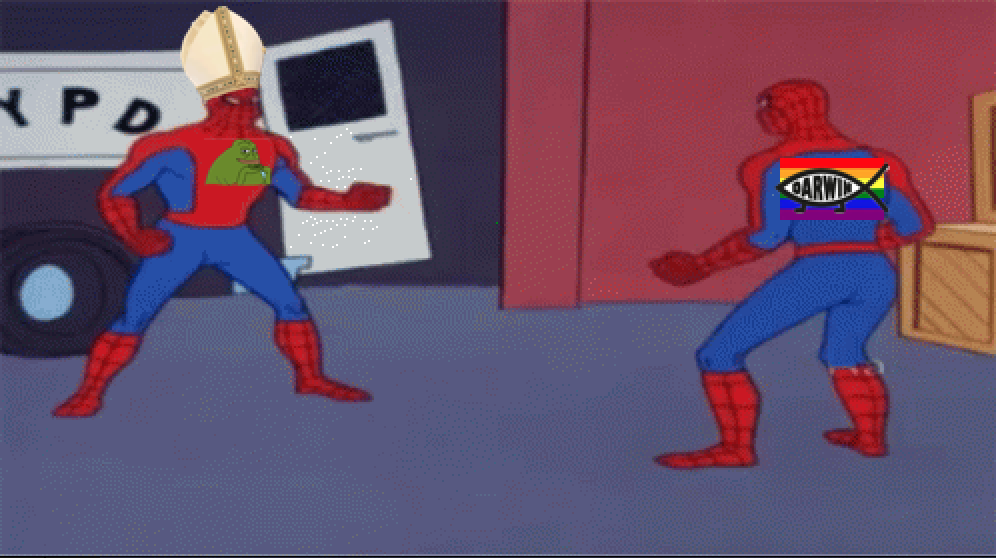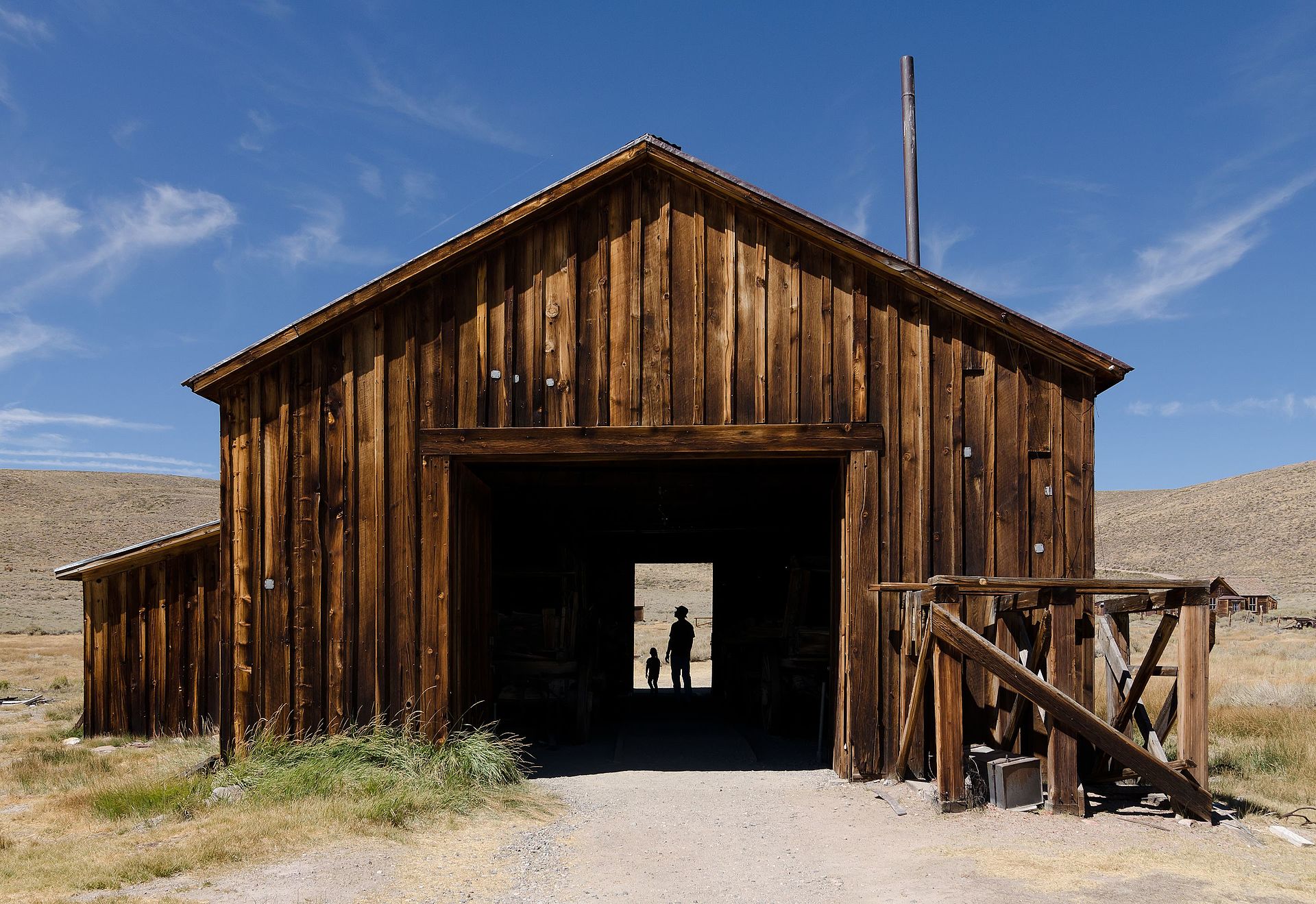A new political vocabulary is needed for a world itself quite new.
“Conservatism” is no Longer Enough

All hands on deck as we enter the counter-revolutionary moment.
Let’s be blunt. The United States has become two nations occupying the same country. When pressed, or in private, many would now agree. Fewer are willing to take the next step and accept that most people living in the United States today—certainly more than half—are not Americans in any meaningful sense of the term.
I don’t just mean the millions of illegal immigrants. Obviously, those foreigners who have bypassed the regular process for entering our country, and probably will never assimilate to our language and culture, are—politically as well as legally—aliens. I’m really referring to the many native-born people—some of whose families have been here since the Mayflower—who may technically be citizens of the United States but are no longer (if they ever were) Americans. They do not believe in, live by, or even like the principles, traditions, and ideals that until recently defined America as a nation and as a people. It is not obvious what we should call these citizen-aliens, these non-American Americans; but they are something else.
What about those who do consider themselves Americans? By and large, I am referring to the 75 million people who voted in the last election against the senile figurehead of a party that stands for mob violence, ruthless censorship, and racial grievances, not to mention bureaucratic despotism. Regardless of Trump’s obvious flaws, preferring his re-election was not a difficult choice for these voters. In fact—leaving aside the Republican never-Trumpers and some squeamish centrists—it was not a difficult choice for either side. Both Right and Left know where they stand today… and it is not together. Not anymore.
Those who wanted to Make America Great Again may refer to themselves as Republicans, though many realize that, apart from Trump, the party does not really care about them. Many may also, in some loose way, consider themselves conservatives. But among these plumbers, insurance salesmen, gym owners, and factory workers there’s one question you can pretty much guarantee they never discuss with their family and friends: “What kind of conservative are you?” This question has virtually no bearing on the problems that overshadow their lives.
It is still a question, however, that occupies intellectuals, journalists, and the world of think tanks. And this matters, unfortunately, because however sensible and down to earth the voters may be, an effective political movement needs intellectual leadership to organize and explain the movement’s purposes and goals. This leadership is still divided into—to name a few—neocons, paleocons (not to be confused with paleo-libertarians!) rad-trads, the dissident right, reformicons, etc. A lot of these labels are a distraction. But before I reject these disputes as mostly irrelevant, let me make a couple of points about why we can’t immediately leave this debate behind—and so why an essay like this is necessary.
“The conservative movement” still matters because if the defenders of America continue to squabble among themselves, the victory of progressive tyranny will be assured. See you in the gulag. On the off chance we can avoid that fate, it will only be if the shrinking number of Americans unite and work together. But we can’t simply mandate that conservatives “set aside” their differences, no matter how urgent it is that they do so. So my goal here is to show why we must all unite around the one, authentic America, the only one which transcends all the factional navel-gazing and pointless conservababble.
Practically speaking, there is almost nothing left to conserve. What is actually required now is a recovery, or even a refounding, of America as it was long and originally understood but which now exists only in the hearts and minds of a minority of citizens.
This recognition that the original America is more or less gone sets the Claremont Institute for the Study of Statesmanship and Political Philosophy apart from almost everyone else on the Right. Paradoxically, the organization that has been uniquely devoted to understanding and teaching the principles of the American founding now sees with special clarity why “conserving” that legacy is a dead end. Overturning the existing post-American order, and re-establishing America’s ancient principles in practice, is a sort of counter-revolution, and the only road forward.
Knowing What Time It Is
Claremont was one of the very few serious institutions on the right to make an intellectual case for Trumpism. This is not an accident. Nor is it an accident that Claremont has never identified with any of the conservative (or liberal) factions. When commentators try to label us, they usually just say “Claremont conservatives.” “True MAGAs” is another label—occasionally used by those who think Trump voters inhabit yet another enclosure in the conservative zoo. In fact, however, they are not a partisan faction or an interest group at all. On the contrary, the position they represent transcends the conservative divisions by representing the true, non-partisan understanding of America. (Yes: this is a bold claim. I will defend it in a moment, along with the claim that Trump voters are essentially “Claremont conservatives.”)
The great majority of establishment conservatives who were alarmed and repelled by Trump’s rough manner and disregard for “norms” are almost totally clueless about a basic fact: Our norms are now hopelessly corrupt and need to be destroyed. It has been like this for a while—and the MAGA voters knew it, while most of the policy wonks and magazine scribblers did not… and still don’t. In almost every case, the political practices, institutions, and even rhetoric governing the United States have become hostile to both liberty and virtue. On top of that, the mainline churches, universities, popular culture, and the corporate world are rotten to the core. What exactly are we trying to conserve?
At a basic level, Trump understood this. His problem was that he lacked the discipline to target his creative/destructive tendencies effectively. But even with greater discipline, he still would have lacked the insight to discern and explain what needs to be destroyed and why. His presidency, especially in a second term, might have corrected this deficiency, except that Trump suffered greatly from an absence of good advisors who could help him make sound judgments. This is partly his own fault, thanks to his bombastic vanity, but partly not, since only a handful of such advisors exist—and these few, moreover, have long been unwelcome in the corridors of power inside the Beltway.
Conservatism, Inc. is worse than useless in this regard because it does not understand through perpetual study what Trump grasped by instinct. As if coming upon a man convulsing from an obvious poison, Trump at least attempted in his own inelegant way to expel the toxin. By contrast, the conservative establishment, or much of it, has been unwilling to recognize that our body politic is dying from these noxious “norms.” Keep taking the poison! it advises. A cynic might suppose that many elements on the right have made their peace with (and found a way to profit from) the progressive project of narcotizing the American people and turning us into a nation of slaves.
What is needed, of course, is a statesman who understands both the disease afflicting the nation, and the revolutionary medicine required for the cure. But no such figure has emerged, and it is unreasonable to pin our hopes on such a savior simply turning up.
What, then, are Americans to do?
Toward America
First, we need to set goals. It is not enough just to smash all the bad things. Mindless chaos or anarchy is no way to achieve justice. One of conservatism’s huge errors for the last several decades has been to think big concepts like justice and fairness don’t matter. So we allowed the Left to own these ideas. Big mistake! Authentic Americans are men, not gerbils—or robots.
If you are a zombie or a human rodent who wants a shadow-life of timid conformity, then put away this essay and go memorize the poetry of Amanda Gorman. Real men and women who love honor and beauty, keep reading.
Authentic Americans still want to have decent lives. They want to work, worship, raise a family, and participate in public affairs without being treated as insolent upstarts in their own country. Therefore, we need a conception of a stable political regime that allows for the good life.
The U.S. Constitution no longer works. But that fact raises more questions than answers. Can some parts of the system—especially at the local and state level—be preserved and strengthened? How would that work? How do we distinguish the parts that are salvageable from the parts that are hopeless? How did all this happen, anyway? The answers to these questions are not obvious. Having a coherent plan—thinking through what American citizenship used to mean, what made it noble and made the country worthy of patriotic love, and how to rebuild its best elements—requires input from people, and institutions, who have given these matters a lot of thought.
I can’t answer each of these questions in detail, or provide the comprehensive political plan we need. But I can tell you that the Claremont Institute is one of the few places where some answers can be found, and where the essentials for such a plan can be developed. And that gets us back to the question of the divisions within conservatism.
Lots of groups today will tell you what’s wrong with society, in light of their particular theory or doctrine. Anarcho-libertarians, Benedict-option Christians, Bronze-Age insubordinates…. the list of quirky responses to America’s accelerating decline goes on. Each of these schools has some important points to make. Yet none represents, or even claims to represent, the vast numbers of heartland voters who still call themselves Americans, and who can only be organized around a restoration (and explanation) of authentic American citizenship—even if that citizenship is now mostly a cherished idea rather than a reality. Claremont does make that claim. And because what the Claremont Institute understands goes to the roots of human nature, justice, and free government, its teaching may prove to be more useful than any other “doctrine” for recovering a decent way of life—the American way of life.
Part of what makes the Claremont Institute a bit oddly unique—recall its full name—is the belief that political philosophy actually matters for political life. That is why it has always had much more of an academic or scholarly orientation than other think tanks. This focus is not quite so odd when we reflect that the founding fathers read, and cited, quite a lot of political philosophy when they created a novus ordo seclorum and a “more perfect Union.” Nor does it seem quite so strange when we reflect on what is happening to our nation today. As fundamental concepts of equality, rights, consent, tyranny, and the right of revolution force themselves into our thoughts and our speech, Claremont’s devotion to exploring and explaining political philosophy now seems increasingly relevant and even urgent.
What, then, is this thing Claremont tries to teach?
When I say that MAGA voters are Claremont conservatives, and that this transcends any faction, I am referring to the idea that the United States was the first nation in the history of the world explicitly founded on the idea that government derives all its legitimacy from the inalienable rights of the people, and makes their consent essential to the common good and justice. American constitutionalism established a nonpartisan form of government that was genuinely unprecedented.
By saying this, I don’t mean that every prior nation, or regime, was evil—though most had little regard for the welfare of the common man. But even when a monarch or ruling family brought peace and safety to the people, this was simply a matter of luck. Aristotle, the first political scientist, explains in his Politics that the best approximation of justice one can practically hope for is to balance out the different factional interests, which usually boil down to the poor many (the “democrats”) and the rich few (the “oligarchs”). Theoretically, you could have a perfectly wise and just king who ruled purely for the common good, but this was so unlikely as be hardly worth considering. (Monarchy, even in Christian kingdoms, also has a strong tendency to descend into tyranny—a lesson underappreciated by some on the right.)
America’s re-conception of “democracy” differed from what that word had usually meant up to that point. For Aristotle and other political theorists, democracy referred to the factional interest of the poor and the many against the rich and the few. That simply amounted to the majoritarian rule of the mob. But when the American founders rebelled against a divinely anointed king and established republican government on the basis of the natural equal rights of all human beings, they inaugurated a truly radical idea.
The rule of the majority in America would be limited in principle to doing what could only rightly be done by all the people. That is, the majority acting in and through the Constitution, could not infringe the rights of the minority. The government derived its authority from consent of all the American people, who created the Union to protect their natural rights to life, liberty, and the pursuit of happiness. That meant no more kings exercising authority by “divine right”; no more hereditary aristocracy; no more established churches; and no permanent bureaucracy staffed by unaccountable “experts.” For the first time, the idea of a social compact uniting all the people would form a truly nonpartisan regime.
The great difficulty is that this idea only works if everyone agrees—that is, if everyone “gets it” and acknowledges that we are all fellow citizens (friends, ultimately) and that any temporary majority in power must represent the rights and interests of all.
This is the vital heart of what made American self-government work as long as it did. And it is the repudiation of this idea that animates the progressive, or woke, or “antiracist” agenda that now corrupts our republic, assaults our morality, and suffocates our liberty.
State of Disunion
Claremont’s intellectual founder, the late professor Harry Jaffa, explains this, and shows why a majority of people living in the United States today can no longer be considered fellow citizens:
The moral education of the whole community in the common natural rights of humanity, as the ground of the social compact, is a necessary condition of free society, of a polity in which majority rule may be combined with minority rights….
By reason of their understanding of what unites them on the fundamental level, the citizens of a free society, while becoming partisans (and even “factions”) with respect to the interests that divide them, will be able to transcend these distinctions, when these threaten the genuine interests they share as fellow citizens. It will teach them, above all, as members of a majority, not to permit the endangering of those rights of the minority, which ought to be their common care.
… [A] free society cannot be neutral towards the convictions of its citizens with respect to their mutual rights and duties. It cannot be neutral towards the morality of citizenship, without being neutral towards itself….
Without that frequent recurrence to (that is to say, frequent re-education in) fundamental principles enjoined by the great documents of the American Revolution “no free government… can be preserved to any people.” These principles as the ground of our patriotism must be defended, whenever the nation itself is defended, if necessary, by the sword. But they cannot be defended politically or by force, if they are not defended first and last, in the souls of the citizens.
Jaffa’s students (many connected with the Claremont Institute, but also at places like Hillsdale College) have spent the last 40 years articulating the premises and implications of that somewhat complicated set of ideas. Again, here is not the place to explain this comprehensive political philosophy. The Institute has lots of publications, and several fellowship programs, that provide different pathways to this teaching. This educational project, to the matter at hand, has been partly a failure and partly a success. It has failed inasmuch as we did not persuade a sufficient number of citizens to prevent the political disintegration now occurring before our eyes. Success, over the long term, may still be possible, but it is an open question. In any case, the ultimate outcome will not be due to a lack of trying.
In 1979, the year the Claremont Institute was founded, Charles Kesler—now the eminent gray-haired editor of the Claremont Review of Books—was a young graduate student in political philosophy at Harvard. In a long cover story for National Review (then in its heyday), Kesler wrote, “When the central ideas of our political tradition become blurred and obscured, when Americans no longer understand what it is that makes them a people, then they will cease to be a people, and that noble and reasonable tradition will decay into ideology.” When that happens, the “spiritedness, the prideful assertion of dignity and independence” that characterizes American citizenship “is severed from its connection to reason” and American self-government “collapses upon itself.”
I mention that 42-year-old essay because it shows how long, and how consistently, Claremont scholars have been making these arguments.
Again, this points to both failure and success. In terms of the latter, it is not well appreciated today how Jaffa, Kesler, and other Claremont writers played an enormous role in pushing William Buckley, National Review, and the whole conservative movement toward a greater focus on, and appreciation for, the American founders. A good argument can be made that were it not for Jaffa’s 60 years of influential scholarship (he died in 2015 at the age of 96), the New York Times and its allies would not have found it necessary to launch the 1619 Project. This assault on America’s history and meaning was deemed necessary, at least in part, because of the work of the Claremont school. Without its decades of advocacy and educational programs, the American founding—the Spirit of ’76—would be even more distant and unfamiliar today than it already is.
This understanding of fundamental principles is also why Claremont may be the only “conservative think tank” that can continue to carry on its work—essentially unaltered—in the face of the great revolutionary change we are now experiencing. This is another way of making the point I argued earlier: America, as an identity or political movement, might need to carry on without the United States.
This brings us back to the question of whether the MAGA voters, and Claremont, can become an effective political force. To do so will require not only an understanding of the right principles, but also the detailed knowledge and practical wisdom needed to apply those principles to our specific circumstances. This skill or wisdom points to the virtue of prudence, which Aristotle regarded as the comprehensive moral virtue, and the defining characteristic of the statesman.
In the meantime, give up on the idea that “conservatives” have anything useful to say. Accept the fact that what we need is a counter-revolution. Learn some useful skills, stay healthy, and get strong. (One of my favorite weightlifting coaches likes to say, “Strong people are harder to kill, and more useful generally.”) Also, read some books, like this one, and this one, or any of these; and consider one of the Institute’s fellowship programs, for yourself or a smart young person you know.
It’s all hands on deck now.
The American Mind presents a range of perspectives. Views are writers’ own and do not necessarily represent those of The Claremont Institute.
The American Mind is a publication of the Claremont Institute, a non-profit 501(c)(3) organization, dedicated to restoring the principles of the American Founding to their rightful, preeminent authority in our national life. Interested in supporting our work? Gifts to the Claremont Institute are tax-deductible.
When the war against wokeness is over, our common culture could be history.
Or die waiting for a narrative to save you.



